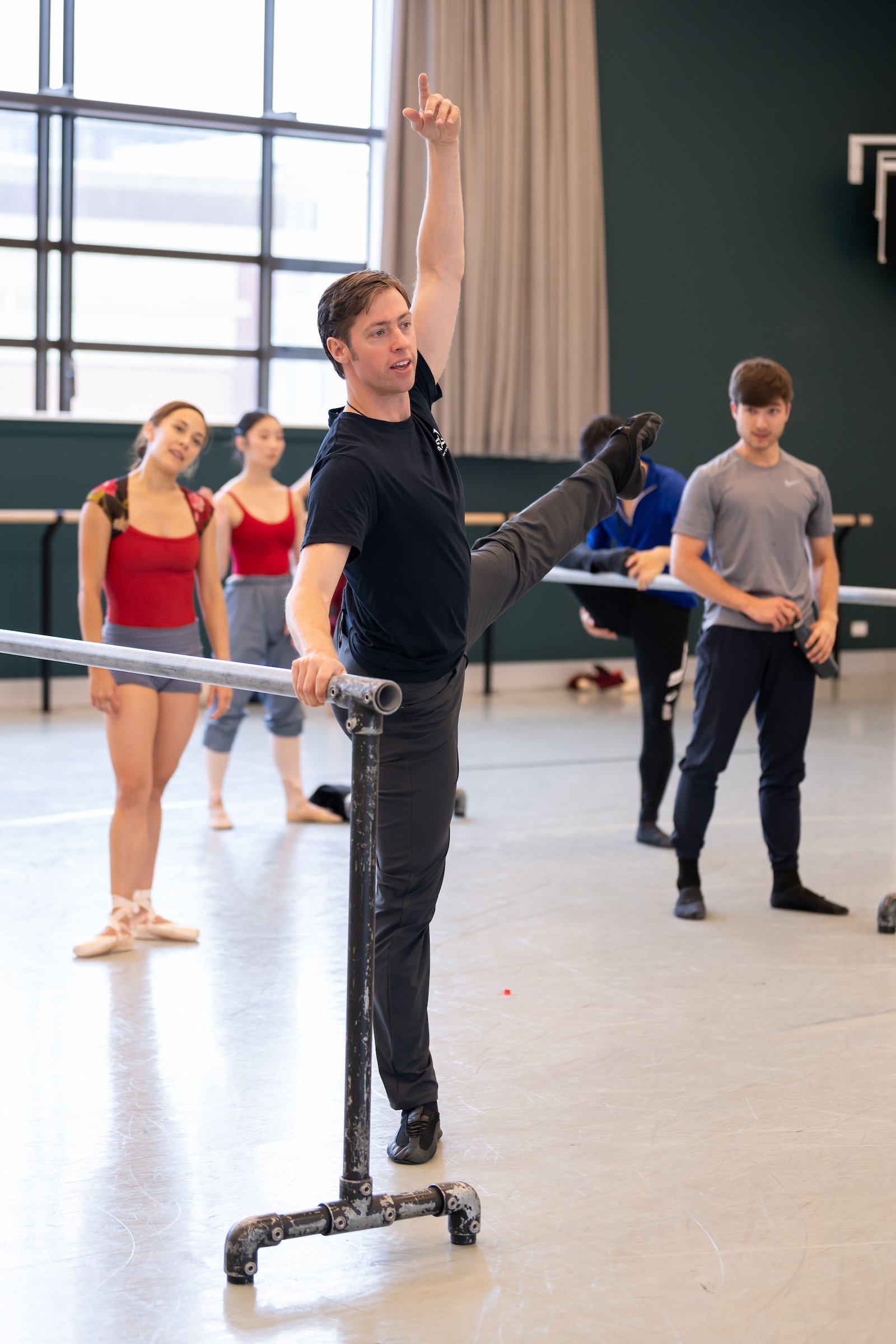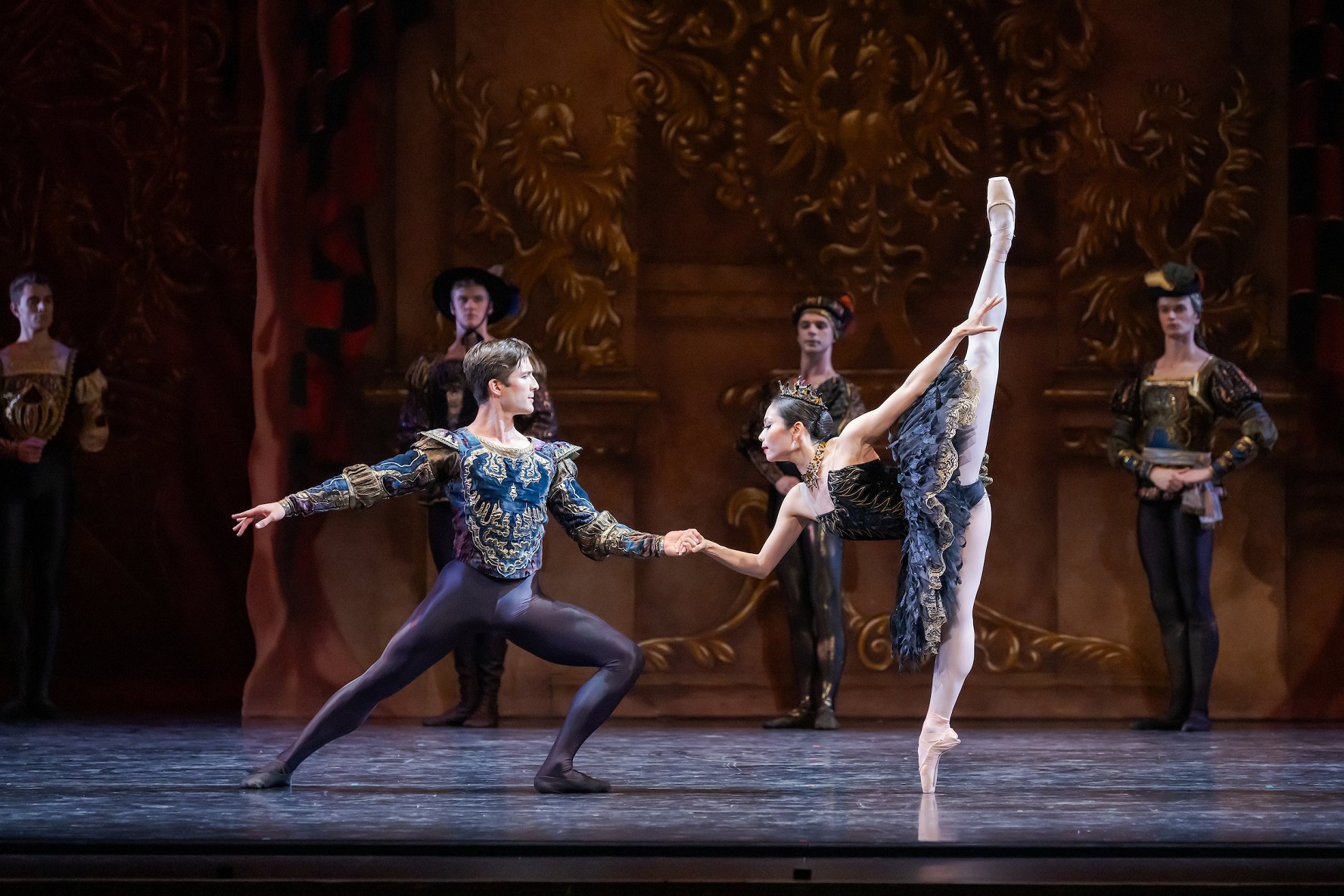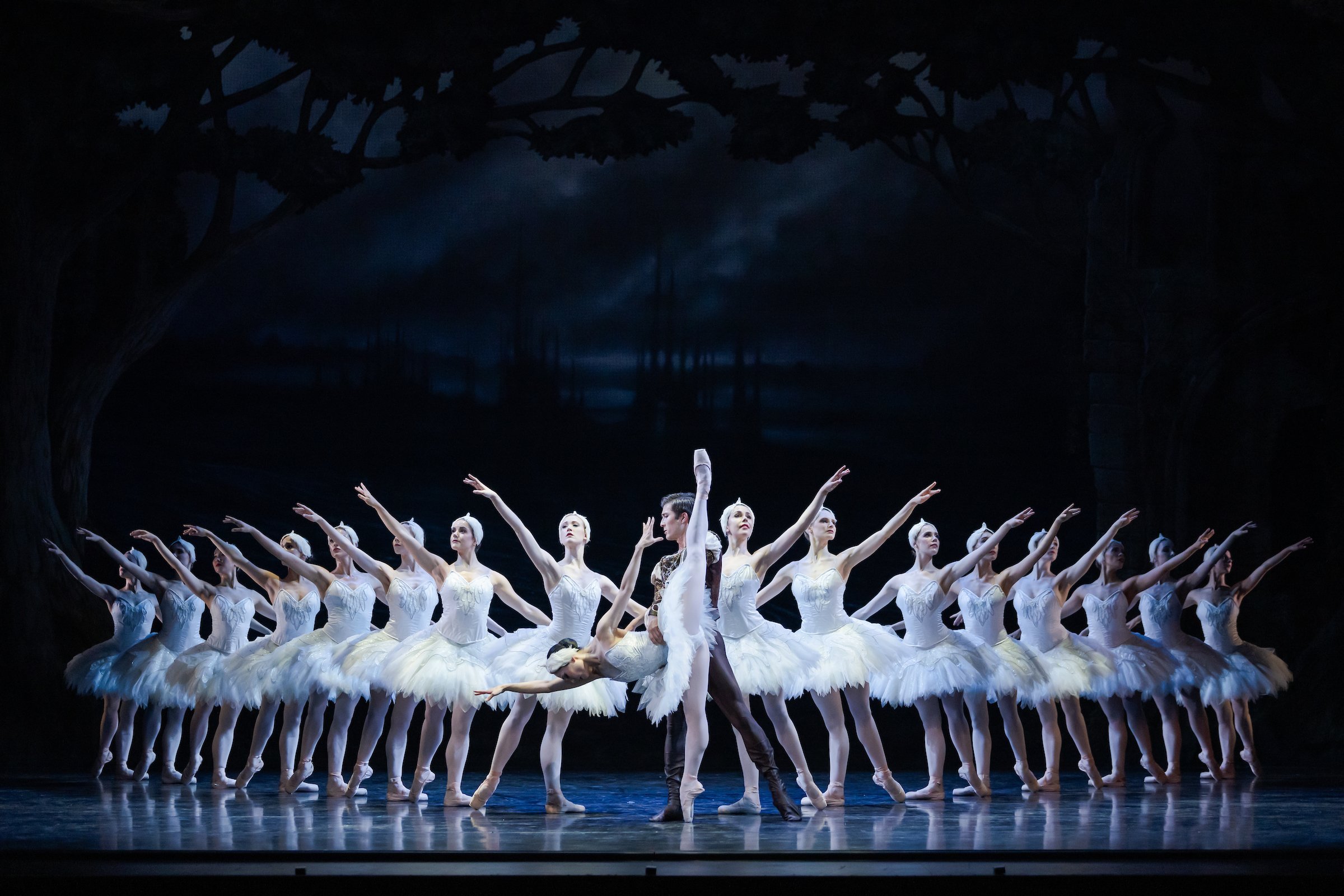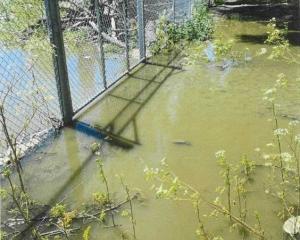
Eleven years ago, Ty King-Wall was leaping across the stage as Siegfried in the Royal New Zealand Ballet’s production of Swan Lake.
This month he was sitting in the audience in his new role as artistic director of the RNZB, a role he has been in for six months. He is the first New Zealander in 52 years to hold the position.
"And it’s a great honour to be to be in this role, to be really a custodian of the company, because it’s a company that has such a proud history. I do feel that responsibility deeply."
Having watched the premiere of the tribute production of the Russell Kerr (1930-2022) choreographed ballet, King-Wall reflects it is quite fitting that the first ballet under his artistic directorship is Swan Lake.
It is the ballet that lit the fire in him to become a dancer in the first place and drew him back to New Zealand in 2013 for his first performance in his own country as a professional dancer.
"Part of that is the sentimentality I have for it, as it is where it all began for me. That production in particular, the one we did last night, Russell Kerr’s Swan Lake, that was where it all started. So it’s amazing, brings it full circle."
King-Wall, who is from the Bay of Plenty, can still remember that sense of wonder he felt seeing Swan Lake for the first time as a novice dancer.
"That was a moment where [I thought] ‘that’s what I want to be doing’. The ability he [Siegfried] had to transcend, defy gravity and I was just like ‘how do you do that? I want to be doing that’."
And so he did. He won the 2002 PACANZ National Young Performer Award before moving to Australia at 16 years old for a place in the Australian Ballet School and then, after graduating dux with honours, on to a role at the Australian Ballet with which he performed in Paris, Beijing, London, New York and Tokyo.
He received the Telstra Ballet Dancer Award in 2010, was promoted to principal artist in 2013, performing many of the top roles, such as Siegfried, and had choreographers Tim Harbour and Lucas Jervies create the roles, respectively, of Ceyx in Halcyon and Crassus in Spartacus for him.
It was not without challenges, as he had a lot of injuries that nearly ended his career.
"I was able to battle through that but I was quite sore and sorry when I finished up."
But after nearly 20 years dancing and touring six months a year, a voice in the back of King-Wall’s head began to suggest it was time to stop and the voice would not go away, instead getting stronger.
"Eventually, I got to the point where I couldn’t ignore it any more and I listened to it."

"I did feel for dance as a career to be successful, it is quite self-focused. I felt very fortunate that I had the opportunities that I had, but I reached a point where I was a little bit sick of myself and was looking for that balance.
"I wanted to spend more time with my young family.
"Those two aspects were really the motivation for finishing."
While dancing he studied, gaining a bachelor of arts (classical studies/psychology) through Massey University, and a master’s in arts and cultural management through the University of Melbourne, but had no real idea of what he wanted to do post-dance other than give back to the profession and art form he had got so much from.
So after retiring in 2022, he was elected to the role of dancers’ director at the Australian Ballet and began teaching at his own school and then at his alma mater, The Australian Ballet School — "another full-circle moment".
"I really want to be a facilitator for the next generation coming through it. It is a generational form. And that knowledge is passed down and I do feel also a bit of a responsibility and a real desire to give back. Which is why I started teaching."
When the opening for the RNZB’s artistic director came up, it was one he could not resist, especially as a "proud Kiwi". He had been wanting to return home to New Zealand for some time but could not really justify it to his family.
"It had to be something really, really compelling to come over. And it doesn’t get much bigger than this. The timing just felt right and I had to put my hand up for it and have been fortunate enough to be given the opportunity. Just honestly I feel very, very privileged."
King-Wall took over from interim artistic director David McAllister, who was his former artistic director at the Australian Ballet.
"I spent most of my career working under David and his directorship. And he was a huge mentor for me as a dancer and we’ll be going forward now with that in this new role. So I think that was really wonderful for me in this transition and I hope for the company as well to have that continuity."
It is traditional for the former artistic director to have programmed a year’s work in advance, so King-Wall picks up McAllister’s repertoire for 2024.
"I was really grateful when he let me know the repertoire that he had planned for the programme for this year because it was all things that I was really keen for us to do."
Obviously the programming of Swan Lake had a lot of nostalgia for King-Wall, but it also meant a lot to the company, as they had planned to do it in 2022 after Kerr’s death, but due to Covid had to cancel it.
"It felt really, really important, really essential that we did it to be able to pay homage to one of our greats."

"So we have a whole generation of a corps de ballet that are being swans. We have a new generation of principals who are taking on these really competent roles."
Sitting in the audience for the first time was a different experience for King-Wall, but he knew it was time to give it over to the dancers and trust in them, as it is their turn.
"It’s great to see them making it their own because that’s what you have to do. You’ve grown up seeing all these incredible ballet dancers, your role models and people you look up to dancing these roles. And then it’s amazing for it to be your time and your turn. But you have to do it your own way."
Similarly with King-Wall’s new role, as he is aware of the company’s history and wants to live up to that.
"It’s quite humbling to be in this position and just wanting to do a good job for all. We have some great people here who do a fantastic job and just wanting to support them and take care of them, allow them to do their roles as best they possibly can."
One of the challenges for King-Wall is not only the learning curve of a new role but also how it requires him to be working in the short, medium and long terms. While he is overseeing the current programme, he is also planning next year’s and the year after’s in conjunction with the company’s new executive director, Tobias Perkins.
"So that is not always easy. But I’m very, very excited about next year, I think, with programming. It’s all about balance. For me, I think ballet has evolved. But what I love about it as an art form is its language. It’s incredibly versatile and anything we can want to say, you can. Any story we want to tell is possible within this language."
He hopes the company can demonstrate all those different facets in any given year.
"It’s about finding the balance between old and new, adult, children, for family, more contemporary, more traditional. And being able to do that in any given year. That’s the tough thing with with programmes, but it can be done."
King-Wall believes the key is for the company to understand and claim its identity — "who we are and and what we’re about".
"That’s really important for us because down here in New Zealand is a long way geographically from the rest of the world. But that presents a fantastic opportunity for us in the sense that we’re able to interpret ballet in a way that’s uniquely us and tell stories in a way that no-one else in the ballet world will. And that gives us the chance to be able to take that and contribute something to to the ballet world in a way that’s very much of us and our own.
"So I think for us moving forward [we need to] really grasp and understand what our identity is, one that really reflects the community and the culture in which we live, and then be able to take that and present that to the world."
TO SEE
Swan Lake, Royal New Zealand Ballet, Regent Theatre, Dunedin, May 30; Civic Theatre, Invercargill, June 2












